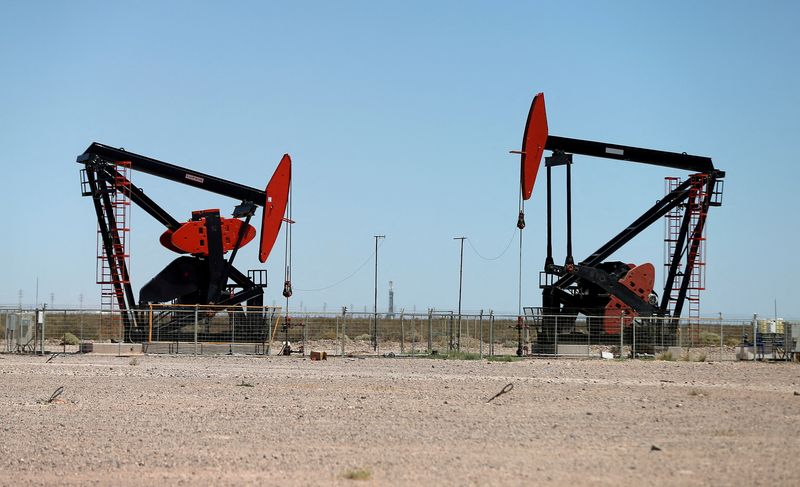By Laila Kearney
NEW YORK (Reuters) -Oil prices settled up about $2 a barrel on Monday on supply jitters, as a key pipeline supplying the United States closed and Russia threatened a production cut even as China's loosening COVID-19 restrictions bolstered the fuel demand outlook.
Brent crude futures settled at $77.99 a barrel, gaining $1.89 or 2.5%. U.S. West Texas Intermediate crude settled at $73.17 a barrel, rising $2.15, or 3%.
Last week, Brent and WTI fell to their lowest since December 2021 as investors worried a possible global recession could hurt oil demand.
The potential of a prolonged outage of TC Energy (NYSE:TRP) Corp's Canada-to-U.S. Keystone crude oil pipeline helped turn prices around.
"Keystone Pipeline repair appears to be taking longer than expected (and) upping the possibility of further stock draws at Cushing," said Jim Ritterbusch at Ritterbusch and Associates.
Traders worried about how long it would take to clean up and restart the Keystone oil pipeline after more than 14,000 barrels of oil leaked last week, the largest U.S. crude oil spill in nearly a decade.
TC Energy shut the pipeline after the spill was discovered late last Wednesday in Kansas. The company told officials in Washington County, Kansas, that they have not yet determined the cause or timeline for a restart. Officials were excavating around the 622,000 barrel-per-day Keystone line, a critical passageway for heavy Canadian crude shipped to U.S. refiners and to the Gulf Coast for export.
The outage is expected to shrink supplies at the Cushing, Oklahoma storage hub, and delivery point for benchmark U.S. crude oil futures.
Seven analysts polled by Reuters estimated, on average, that overall crude inventories dropped by about 3.9 million barrels in the week to Dec. 9, a preliminary Reuters poll showed.
Bank of America (NYSE:BAC) Global research said Brent could rebound past $90 per barrel on the back of a dovish pivot in the U.S. Federal Reserve's monetary policy and a "successful" economic reopening by China.
"China's reopening is definitely something the market is focused on," said Phil Flynn, analyst at Price Futures group.
China, the world's biggest crude oil importer, continued to loosen its strict zero-COVID policy, though streets in the capital Beijing remained quiet and many businesses stayed shut over the weekend.
On Monday, queues formed outside fever clinics in the cities of Beijing and Wuhan, where COVID first emerged three years ago.
"Oil markets will likely stay volatile in the near term amid uncertainty over the impact on Russian output from the EU's ban, headlines on China's COVID policy, and central bank movements in the U.S. and Europe," UBS analysts said in a note.
Russian President Vladimir Putin said on Friday that Russia could cut production and would refuse to sell oil to any country that imposes a "stupid" price cap on Russian exports.
Saudi Arabia's energy minister also said on Sunday that price cap measures had no clear results yet.
The number of tankers waiting to pass through Istanbul's Bosphorus Strait fell on Monday, showing an easing of the recent build-up in traffic.
"The emergent EU embargo on Russian crude... may add moderate upside energy price risks in the next few months. But supply uncertainty should ease by spring 2023, after the embargo on oil products (on Feb.5) plays out," Deutsche Bank (ETR:DBKGn) said in a note.
